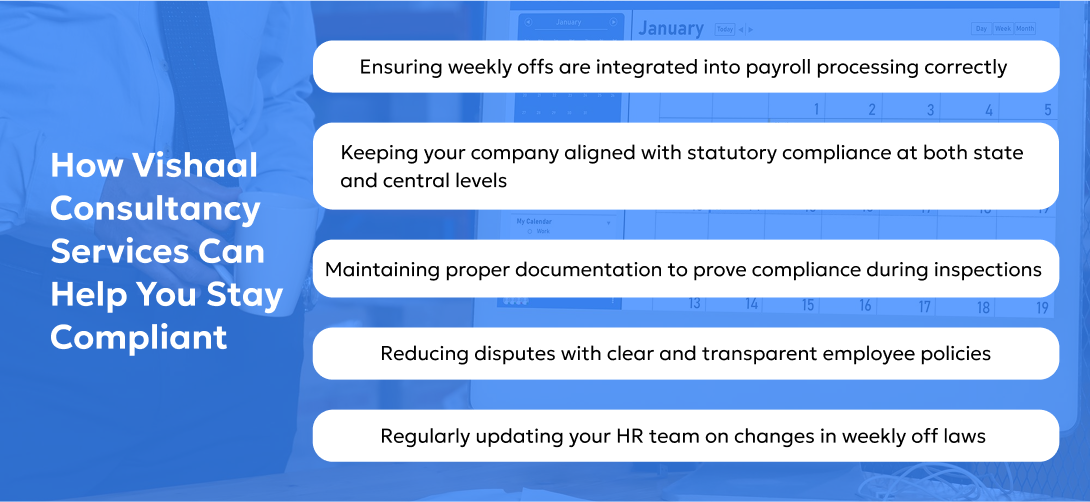
Table of Content
Every worker needs a proper break to rest and recharge. Weekly offs are not just about relaxation, they are a legal safeguard to protect employee health and ensure fair working conditions. For employers, understanding and applying these rules correctly is a crucial part of compliance.
Recently, several disputes in Indian courts have highlighted the importance of following weekly off rules as per labour law. Companies that overlook these requirements will face penalties and reputational risks. It’s clear that weekly offs are not optional perks but enforceable employee rights.
In this guide, we will explain what weekly offs mean, the laws governing them, whether weekly offs are mandatory in India, how policies should be structured, common employer mistakes, and a real-world case that shows why compliance matters.
Weekly off means one full day of rest given to employees after a stretch of continuous working days. It is not casual leave or earned leave, but a statutory rest period mandated under labour law.
The concept exists to prevent excessive fatigue and promote a healthier work environment. Under most state laws, employers must schedule at least one fixed day of rest each week for every employee. For example, if an employee works Monday to Saturday, Sunday would generally be the weekly off.

Yes, weekly off rules as per labour law in India are clearly outlined in the Factories Act,1948 and various Shops and Establishments Acts at the state level. These laws state that no employee should work for all seven days of the week. They must receive at least one uninterrupted day of rest after six consecutive working days.
To put it simply, when asked “is weekly off mandatory in India?” the answer is an absolute yes. Employers cannot treat it as a flexible benefit. Even if the nature of work requires continuous operations, such as in hospitals or hotels, employees must still be given a weekly holiday on a rotational basis.

Context:
The Issue:
The Trigger:
The Impact:
The Bombay High Court ruled in favour of the employee, holding that compelling a worker to perform duties for seven days a week is unreasonable and contrary to law. The court further observed that declining to work under such unlawful conditions does not amount to misconduct and cannot be used as grounds for termination.
What We Learn:
Understanding and implementing weekly off rules as per labour law can be complicated, especially for businesses with multiple branches across different states. Rules may vary, and missing even one requirement can lead to penalties.
That’s where Vishaal Consultancy Services supports you. We help businesses by:

Weekly off rules in India aren’t just formalities. They act as safeguards, protecting employees from burnout and saving employers from penalties. By knowing what weekly off means, understanding that it’s mandatory in India, and following the rules carefully, companies can build a workplace that is both compliant and people friendly.
And think of weekly offs as an investment rather than an obligation. Because well-rested employees are more productive, motivated, and more committed to the company in the long run. If you’re ever unsure about weekly off compliance or other statutory requirements, Vishaal Consultancy Services is here to support you with expert labour law advisory so you can stay compliant with ease.
See Related Blogs
BLOGS
Fill in your details to download our exclusive e-learning document.
Fill in your details to download our exclusive e-learning document.
Fill in your details to download our exclusive e-learning document.